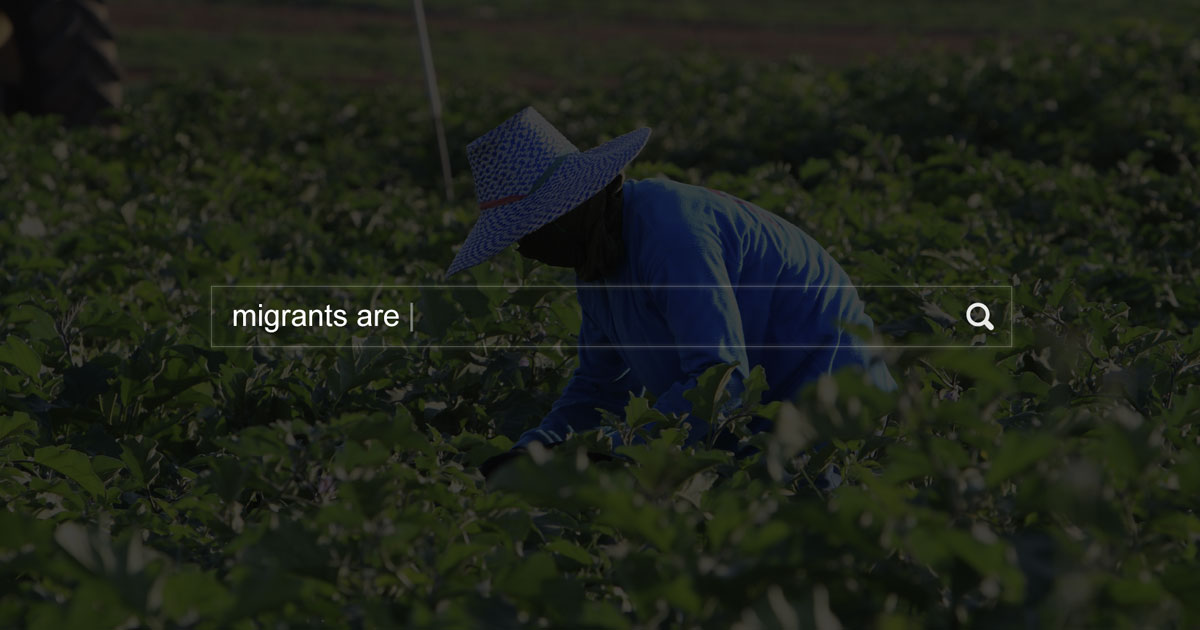World TB Day: A chance to transcend the debate and assure all people can access TB treatment

Type “Migrants are...” in your search bar and and you’ll see what your browsing history guesses you believe. “Migrants are scum, migrants are invaders, migrants are ruining Europe,” pop up on one browser, whereas, when I’m signed in, Google -- which knows me a little better -- says “migrants are our neighbors” and “migrants are here to stay” -- perhaps not any less controversial, but a bit more nuanced. What about tuberculosis? Write in “Tuberculosis is…” and no suggestion appears. Instead, you get TB symptoms, treatment, and screening.
That’s the way it should be. We all agree: TB is a global health concern that is easily diagnosed and inexpensively treated and cured. Yet, it kills over 1.5 million people annually and remains one of the deadliest diseases in history. Almost 10,000 US cases were reported in all 50 states in 2016. My state of Pennsylvania is not immune. This week in Pittsburgh, I announced 2017 statistics for Pennsylvania: 192 cases, compared to 174 in 2016, likely placing us just shy of the top ten states for TB incidence. Yet, despite our agreement on the facts, funding continues to be unacceptably low and the US has barely moved the needle toward elimination. The CDC’s TB Fact Sheet notes that “the rate of decline in the United States remains too slow to achieve TB elimination in this century.”
It is in all of our best interest to assure that all people in the US -- even migrants -- have access to TB treatment. Migrants, including those with authorization to live and work in the US, struggle to maintain care as they move. A patient with a newly diagnosed case of TB will have a minimum six-month long treatment with weekly directly observed therapy. But a migrant who needs to move for work will be unable to complete treatment because our health systems cannot accommodate migration. Lack of funding minimizes TB case management by nonprofits like Migrant Clinicians Network, which offers Health Network to bridge care as the patient moves. Without case management, patients discontinue treatment, causing TB to spread and to potentially develop into multidrug-resistant TB (MDR-TB), which requires expensive, gruelling treatments to cure.
But blaming migrants for TB is too easy -- and misleading. While migrants are one of several subgroups that have higher rates of TB in the US, the truth is TB can be spread by business travelers meeting and working abroad, college students studying internationally, adventurers in remote parts of the world, and church groups and medical teams volunteering their time and expertise in high TB burden countries, since the TB bacterium knows no international borders nor socioeconomic boundaries. And, regardless of who contracts TB, it is prudent to assure it does not spread. In the days of the first polio vaccine, we understood that all those living in our country -- including migrants and recent arrivals -- should have access to the vaccination since it would benefit all of us to be free of polio. Yet, we do not put forward the resources to assure TB treatment completion in the US or worldwide.
Today is World TB Day, a day when we can transcend the debate over migration which has become louder and harsher nationwide, and in doing so, we can move forward to eliminate TB once and for all. Even our search bars agree that TB is uncontroversial. It’s an illness that we need to, and have the power to, eliminate. But to do so, we need to transcend the debate over whether migrants “deserve” treatment -- because, regardless of divisions over migration policy, we will all benefit when everyone can access treatment for TB.
Like what you see? Amplify our collective voice with a contribution.
Got some good news to share? Contact us on our social media pages above.
Return to the main blog page or sign up for blog updates here.
- Log in to post comments
